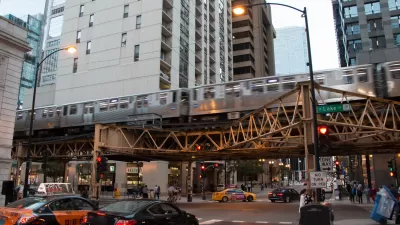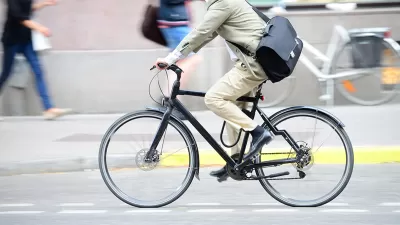The Build Back Better legislation could bring much-needed support to place-based economic development programs.

A brief from the Brookings Institution authored by Mark Muro, Robert Maxim, Anthony F. Pipa, Yang You, and Colleen Dougherty paints an optimistic picture for place-based programs, which could receive increased federal funding thanks to the Build Back Better Act.
Some of the pending place-oriented programs would boost the nation’s regional innovation capacity by investing hundreds of millions of dollars in regional tech hubs, manufacturing institutes, and regional industry clusters. Others would provide block grants so distressed labor markets can expand employment opportunities. And still others would channel multiyear investments into communities to help with energy and industrial transitions, community revitalization, and rural partnerships.
Although these programs haven't received much media attention, the authors note, the more than 30 place-based programs in the bill "represent a genuine breakthrough for the growing recognition that smart investments aimed at strengthening the economies of particular regions or localities can enhance overall welfare and prosperity."
This stands in contrast with prior policy that assumed market forces would eventually lessen the differences between places, even as the economic health of regions and individual towns and neighborhoods grew further apart. Now, research from Brookings and others is showing the potential of place-based economic development that considers local conditions and needs.
While place-based initiatives come with their own set of challenges, the proposed policies in the Build Back Better Act could provide a new framework for approaching economic development and reducing regional inequality.
As of December 15, the Build Back Better Act appears unlikely to be approved by the end of the year, though the White House put out a statement reaffirming support for the legislation from within the Democratic party's more obstinate elements.
FULL STORY: The House’s Build Back Better Act is a milestone for place-based solutions

Maui's Vacation Rental Debate Turns Ugly
Verbal attacks, misinformation campaigns and fistfights plague a high-stakes debate to convert thousands of vacation rentals into long-term housing.

Planetizen Federal Action Tracker
A weekly monitor of how Trump’s orders and actions are impacting planners and planning in America.

Chicago’s Ghost Rails
Just beneath the surface of the modern city lie the remnants of its expansive early 20th-century streetcar system.

Bend, Oregon Zoning Reforms Prioritize Small-Scale Housing
The city altered its zoning code to allow multi-family housing and eliminated parking mandates citywide.

Amtrak Cutting Jobs, Funding to High-Speed Rail
The agency plans to cut 10 percent of its workforce and has confirmed it will not fund new high-speed rail projects.

LA Denies Basic Services to Unhoused Residents
The city has repeatedly failed to respond to requests for trash pickup at encampment sites, and eliminated a program that provided mobile showers and toilets.
Urban Design for Planners 1: Software Tools
This six-course series explores essential urban design concepts using open source software and equips planners with the tools they need to participate fully in the urban design process.
Planning for Universal Design
Learn the tools for implementing Universal Design in planning regulations.
planning NEXT
Appalachian Highlands Housing Partners
Mpact (founded as Rail~Volution)
City of Camden Redevelopment Agency
City of Astoria
City of Portland
City of Laramie





























